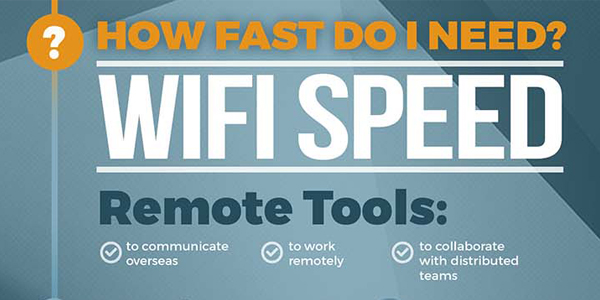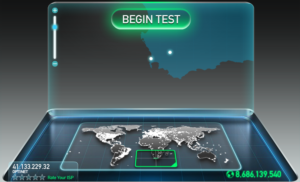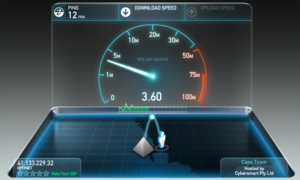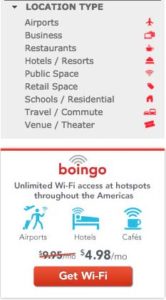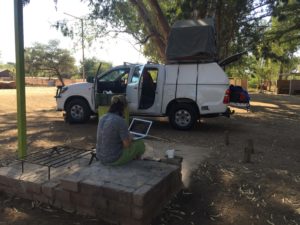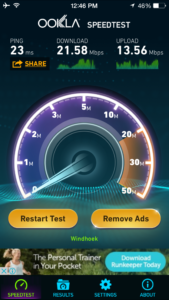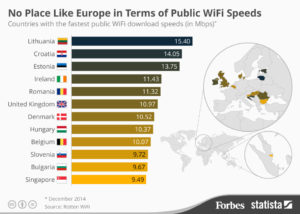The best part about working remotely or as a freelancer in the digital age is the endless possibility in terms of choosing the work site that works best for you. Want to work from your café or perhaps from a library? Or maybe you want to check a few items off your agenda while you’re enjoying the local cuisine at your favorite vacation destination?
Interestingly, as limitless or varied as your work locations can be, choosing where you next set up your work desk can also be quite limiting as it’s defined by the availability of Wi-Fi – the flip side of the digital age. If there is no reliable internet connection, it’d be impossible to work, unless you’re an artist trying to recapture the nearby scenery or spot. So no matter how fantastic your favorite jaunt is or how delicious the coffee they serve, you cannot operate from it if it doesn’t provide the best Wi-Fi hotspot for working remotely.
After all, operating as a digital nomad, a freelancer, remote worker or a startup entrepreneur, finding reliable wi-fi is CRITICAL to your daily operations. Wi-fi cannot be overlooked or underrated.
Table of Contents
Not All Places with Free WiFi are Created Equal
I took off to Costa Rica in 2009 lured by the promise of wi-fi near the beach. Little did I know at the time … the line was shared with 12 other locations (just think dial-up speeds) and the power went out regularly – and by regularly I mean 1-2x daily.
Caution: Just because someplace offers wi-fi, it doesn’t actually mean you’re getting the type of connection that you’re used to.
So how do you ensure a dependable Wi-Fi connection when working remotely? Live Work Anywhere shares some fantastic tips for testing the internet speed as well as picking the best Wi-Fi hotspots for working remotely. Let’s get started!
How to Find Wi-fi that’s FAST and RELIABLE
When you set up shop and get ready to call your client for the big meeting, you’ll want to make sure you have the proper connection for the communication tool of choice.
First thing, always check your wi-fi speed to determine the strength. Generally speaking, you need at the very very least 1 mb download speed to be able to be functional and make a (choppy) Skype call.
Keep in mind, this 1 mb refers to a DEDICATED connection, not shared. It must be a consistent 1 mb or it will randomly drop the call. You don’t want this.
How to Test Your Wi-Fi Speed
Go to www.speedtest.net
You’ll see a screen that comes up. It first detects your location and a place to “ping” a local server. Then you’ll see BEGIN TEST. Click Begin Test.
A little man will come up and your wi-fi speedometer will begin to calculate speed.
I prefer at least 4 mb download at minimum. Let’s be real, most of us are probably multitaskers and window or tab switchers. Having a call is one thing but you’ll need to switch back and forth to your notes. So, make sure to have at least 4 mb dedicated (there’s that word again) speed.
What do I mean by dedicated? Not a shared network – or, having a limited number of connections. If you have 10 people sharing the same 4 mb connection and one person attempts to stream a video on YouTube, he/she will hog all the bandwidth and leave you with very little or a dropped call.
Ensure the line is private and protected and that you know how many people are connecting into the same wi-fi network to avoid surprise drops and delays.
How Strong of a Wi-Fi Connection Do I Actually Need?
The answer to this is that it depends on what you’re actually doing. If you’re making a Skype voice call, you need less than 1 mb (though I wouldn’t recommend ever going below 4mb).
For a Skype VIDEO call, you need 4 mb non-shared minimum in order not to have any hiccups. I would suggest an 8mb connection if possible as your minimum target.
Here’s a handy chart you can keep with you when determining your connection speed and pairing it with the app you plan to use.
(Click image to see complete infographic)
Where Do I Find Strong AND Reliable Wi-Fi?
When you go to a new city, the adventurer in you most likely doesn’t want to find your usual Starbucks. However, coffee chains, particularly ones you know already, can offer reliable wi-fi, overpriced coffee, and a place to get things done.
1) Coffee Shops (particularly chains)
Sometimes I just feel like having a coffee, saying hello to friends, brainstorming something creative, and not having a meeting. For those times when I want to just enjoy local scenery or culture, I seek out a local independent coffee shop with a unique flavor and local vibe to study local culture.
But when reliability matters, I feverishly hunt down a chain location. These vary from country to country. A few staple chains are: Starbucks (worldwide), McDonald’s (worldwide), Burger King (Eastern Europe), Costa Coffee, Einstein Coffee (Germany).
I have yet to find a Starbucks anywhere in the world that doesn’t have good wi-fi, air conditioning, and doesn’t allow you to sit for hours at a time on your computer. This is my number one go-to for reliability. Tourists and large pre-work and mid-afternoon coffee drinker crowds may be your biggest noise distraction but generally speaking you can sit for hours and won’t be disturbed.
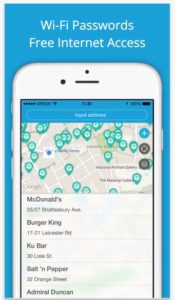 Note: Not all locations are identical – sometimes you’ll need to ask for the wi-fi code, and wi-fi times might be limited, so make sure to check before you plan out your meeting schedule. But at the very least you can start out at a Starbucks to figure out your next stop(s).
Note: Not all locations are identical – sometimes you’ll need to ask for the wi-fi code, and wi-fi times might be limited, so make sure to check before you plan out your meeting schedule. But at the very least you can start out at a Starbucks to figure out your next stop(s).
Here is a list of apps for finding wi-fi while you are mobile.
A couple that I’ve found useful are Free Wi-Fi and Passwords Hacker.
If you are just in the mood for coffee, here’s a list of apps for coffee shops (and you can probably double the caffeine with wi-fi access).
2) Accommodations / Home Office
Always always make sure where you’re staying has wi-fi – and strong wi-fi that isn’t shared with everyone.
If you’re staying in a hostel make sure that the wi-fi is in the room, not just the common rooms, so that you can have quiet concentration time.
If your budget allows, grab an AirBnB studio apartment with wi-fi. It’s perfect for quiet space and your very own dedicated wi-fi. The extra price can be worth the potential loss in business. Make sure to ask your host to test your download/upload speeds using speedtest.net and make sure it’s not a shared line.
3) Co-working Spaces
Co-working spaces are popping up all over because of the need for strong, reliable wi-fi and consistent power. For a monthly fee, you get strong wi-fi, less noise than a coffee shop or cafe (though choosing the right co-working space for this is important), a community of likeminded people (again, choosing the right place will be important to tie into a community that will be mutually beneficial for business growth), consistent power, a desk to sit in, and long working hours.
Co-working spaces vary so it’s important to know exactly what you’re looking for. Do you want a social community? Do you want business networking? Do you need quiet, private space? What kind of a community, if that’s one of your criteria, is important to you? Do you want a fancy, upscale co-working space or one that caters more to artists?
AnyPass can help you find the perfect space every time, especially when you are on the go and don’t have time to do the research. It’s helpful to know what type of place you’re looking for beforehand.
Some co-working spaces will offer you a free pass for the first time you visit. A google search for “co-working spaces in _____ (city name)” will help guide you. If you want to save time or if your time is limited, contact us at AnyPass and we will do the research for you so you have a place to plug into that’s right for you, right away.
4) Private Office Space
Co-Working spaces also offer private offices for those times when you need zero distractions. WeWork is quickly growing into a worldwide behemoth of private office spaces that are generally affordable for market rates.
Regus is another option for worldwide office locations with a variety of options from mail handling and phone calls to desks and conference spaces.
Be sure to join the network ahead of time to ensure seamless bookings and management of spaces.
5) Private Cable Wi-Fi Networks
In the US, most people have some sort of cable network for their Internet. We have networks like Xfinity and TimeWarner Cable (TWC). You may be out on the desolate coast working in a van (like I was recently in Western Washington near the surf town of Westport) and still see an Xfinity network pop up.
In South Africa, you might see Free Wi-Fi or Telecom Hotspot.
Sometimes all you need to do is log in to the network or buy a day pass and you can be up and running.
Boingo is also offered at 100 million hotspots worldwide so you might see this pop up at airports or public places like shopping malls in cities around the world. These are some sample venues of Boingo locations: Airports, Businesses, Restaurants, Hotels/Resorts, Public Spaces, Retail Spaces, Schools/Residential, Travel/Commute, Venue/Theater.
Some Unexpected Places
Wi-Fi isn’t limited to coffee shops or apartments. Here is a picture of me working in Namibia, Africa, getting speeds of 21-36 mb down from a 4×4 camper with CarFi, car wi-fi that plugs into the cigarette lighter.
I mentioned my Mitsubishi Delica earlier and working from the van with a Tmobile Hotspot. Watching the sun rise and set while spending the day by the beach are days I will never take for granted.
When not on the road, I’m often working from my houseboat in Seattle, again with a Tmobile Hotspot.
Some Cities are Better Than Others
While digital nomad cities are all the rage these days for amazing climates and inexpensive startup costs, what you’re gaining in a suntan you may be sacrificing in loss of connectivity.
Based on data collected from public WiFi hotspots across 172 countries, countries in Europe are the fastest and most well connected.
If you can afford the higher cost of living, then finding a spot in one of these countries might be to your favor.
So where’s a great place for you to live?
Stay tuned – we’re working on a reference chart that will help you determine the best places for you to live, based on your needs and preferences.
Where NOT to Find Strong Wi-Fi that’s Consistent and Reliable
1) Independent coffee shops
These CAN be a good bet in many cities and you absolutely can find them. Many cities, and with good reason, find cafes are for peaceful dining and socializing.
Here are some guides to finding wi-fi and places to work in nomad-friendly cities <link to LWA city guides>. However, when you’re first setting up shop, try a chain first so that you can (nearly) be sure of the ability to get work done.
2) Cheap Hotels and Hostels
While these locations may offer wi-fi, you always get what you pay for. Party hostels are cheap because they are overcrowded, there for you to socialize (not work), and wi-fi is not considered essential.
Mobile Wi-fi as a Backup: Mi-fi, SIM, Hotspots – even Car-Fi!
We’ve identified where to get strong and reliable wi-fi based on the best locations. But when you’re globe trotting you may be in some areas where there is no Starbucks, no McDonald’s, no Cable Wi-Fi network. Sometimes there’s no cell reception and you’re forced to work offline. But for those times when there IS cell phone reception and you are able to get data, it’s great – and highly recommended – to have a backup.
I recommend always having an unlocked hotspot with you, a local SIM card with a data plan and an unlocked mobile phone, and the ability to update your phone’s data plan in only a few clicks.
Do You Need Mobile Wi-fi? Hotspots versus SIM cards.
Well, that all depends.
If you have your AirBnB studio with wi-fi, then you probably won’t need it, unless you plan to be out and about a lot.
If you’re working from cafes with strong wi-fi that let you sit and work, you won’t need it.
If you choose to work from your hotel / hostel room, a boat on a marina, a campsite, a mountain (with cell phone reception), a bus/train, etc then you will likely want to have mobile backup.
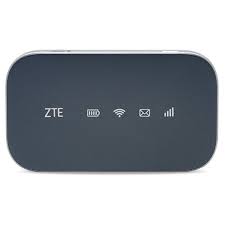 I carry around a TMobile ZTE hotspot and I also have a TMobile simple plan iPhone that I can upgrade within 2 minutes online to activate as a hotspot.
I carry around a TMobile ZTE hotspot and I also have a TMobile simple plan iPhone that I can upgrade within 2 minutes online to activate as a hotspot.
Most cities will offer you a mobile hotspot option. Just go to the local carrier shop and ask for a hotspot. Generally speaking, it will cost around US $100 for the hotspot and some credits.
If you want to spend less, then make sure your phone is unlocked and buy a local SIM card with a data plan. You can start out this way from $20 USD and you’ll only have one device to worry about carrying around.
On the other hand, depending on how quickly you go through data, you may want to carry around a hotspot. Data plans for phones are catching up, but hotspots as of this posting are still faster and have better data capability.
How Does Mobile Internet, or Mi-Fi Hotspot, Work?
Mi-fi is a short term for mobile wi-fi. Since you are mobile, or planning to be, you should consider this as an option.
Does my mobile device work overseas? As of this writing no.
The reason – because it’s tied to a local cell phone carrier / company and there is high competition.
When you go to a new country, similar to purchasing a SIM card, you would purchase a data plan with that SIM card (to have wi-fi on your phone) or you would purchase a hotspot, or mi-fi device, like my TMobile hotspot.
The hotspots (mi-fis) also have a SIM card. Unless you plan on living in the same location for 2 years or longer, it’s best to find a hotspot with a month to month, or prepaid plan.
Some options in the US are: TMobile, Verizon, AT&T.
Mobile wi-fi also means being connected while in the air or in the airport.
Services like Boingo and GoGo offer services to help you stay connected in the airport and in the air, respectively. AnyPass automatically connects you with these services as your partners.
Any tricks you’ve found for finding fast and reliable wi-fi that aren’t listed here? Please share!
How to Get WiFi While Traveling: Conclusion
Hopefully, with these tips, testing and finding fast and reliable Wi-Fi for your remote work will be easy. Go ahead – hunt for a suitable co-working space, café, or maybe even a chalet with strong Wi-Fi to work remotely if you want to work in isolation. Live Work Anywhere remains committed to bringing resources and advice to anyone who wants to realize their dream of living and working from anywhere – literally.
